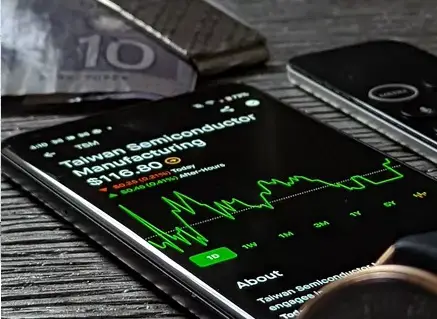Stocks fell Monday, with the losses led by tech stocks, indicating investors are worried about the start of earnings season as well as new inflation data coming out Wednesday.
The Nasdaq shed 2.3%, as the S&P 500 fell 1.2%. The Dow was down 0.5%, or 160 points.
The euro dropped 1.4% to $1.0044, approaching parity with the dollar as it reached a new two-decade low. Investors are increasingly fearing a European recession produced by the energy crisis as Russia withholds gas shipments over the sanctions levied against it because of the war in Ukraine. In addition, the European Central Bank appears highly cautious in tackling rising inflation for fear of triggering a recession.
Twitter fell 11.3% to $32.65 a share, as investors processed Elon Musk’s withdrawal from his $44 billion takeover bid and the looming legal battle – as well as what it might reveal in court about Twitter’s operating metrics. Some however, feel Musk will still end up buying Twitter.
Wells Fargo Senior Equity Analyst Brian Fitzgerald said, “It really isn’t about the bots. This is Team Musk articulating for a lower price.”
Oil fell as renewed fears of Covid in China threatened new lockdowns, and another temporary elimination of Chinese demand for energy. US benchmark West Texas Intermediate crude (WTI) dropped about 1%, or $1, to 103.70, partially wiping out a 2% gain on Friday. Brent also dropped roughly 0.3% to $106.71.
As earning season begins, investors now await the flood of reports which will shift the pricing models from estimate-based to reality-based, as well as projections of what that reality may mean for the future.
Early reports will come in from JPMorgan Chase (JPM), Wells Fargo (WFC), and Citigroup (C), PepsiCo (PEP), and Delta Air Lines (DAL).
Wall Street reduced its Q2 bottom-up earnings per share estimate for the S&P 500 (an aggregation of the median Q2 earnings estimates for all 500 companies in the index), by 1.1% from March 31st and June 30, according to FactSet’s most recent data.
While the 4.1% earnings growth estimate for the quarter would be the slowest since 2020 years-end, the reduction is smaller than is normal for just ahead of earnings season.
Later in the week on Wednesday, the Bureau of Labor Statistics will release its Consumer Price Index for June, giving investors a better idea of how fast prices are really rising, as well as how the Fed may view inflation as it decides how fast to hike rates at its next meeting. In a survey by Bloomberg, economists estimated headline inflation would come in at 8.8%, which would be the highest reading since December of 1981, and the hottest of the current cycle.
Deutsche Bank Chief U.S. Economist Matthew Luzzetti said, “We’re expecting another strong inflation print. For a market that’s been dealing with certainly recession fears, I think this week will be renewed fears about elevated inflation.”
If the print comes in that hot, expect fears of the next FOMC meeting to multiply, and the talk of a recession to become even more prevalent.

